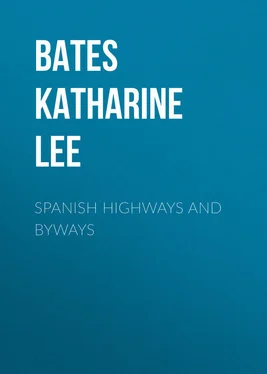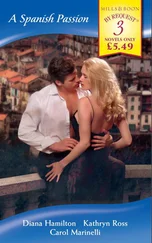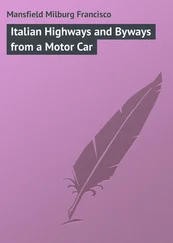Katharine Bates - Spanish Highways and Byways
Здесь есть возможность читать онлайн «Katharine Bates - Spanish Highways and Byways» — ознакомительный отрывок электронной книги совершенно бесплатно, а после прочтения отрывка купить полную версию. В некоторых случаях можно слушать аудио, скачать через торрент в формате fb2 и присутствует краткое содержание. ISBN: , Жанр: foreign_antique, foreign_prose, Путешествия и география, на английском языке. Описание произведения, (предисловие) а так же отзывы посетителей доступны на портале библиотеки ЛибКат.
- Название:Spanish Highways and Byways
- Автор:
- Жанр:
- Год:неизвестен
- ISBN:http://www.gutenberg.org/ebooks/38767
- Рейтинг книги:5 / 5. Голосов: 1
-
Избранное:Добавить в избранное
- Отзывы:
-
Ваша оценка:
- 100
- 1
- 2
- 3
- 4
- 5
Spanish Highways and Byways: краткое содержание, описание и аннотация
Предлагаем к чтению аннотацию, описание, краткое содержание или предисловие (зависит от того, что написал сам автор книги «Spanish Highways and Byways»). Если вы не нашли необходимую информацию о книге — напишите в комментариях, мы постараемся отыскать её.
Spanish Highways and Byways — читать онлайн ознакомительный отрывок
Ниже представлен текст книги, разбитый по страницам. Система сохранения места последней прочитанной страницы, позволяет с удобством читать онлайн бесплатно книгу «Spanish Highways and Byways», без необходимости каждый раз заново искать на чём Вы остановились. Поставьте закладку, и сможете в любой момент перейти на страницу, на которой закончили чтение.
Интервал:
Закладка:
"With sixty lances in his train my Cid rode up the town,
The burghers and their dames from all the windows looking down;
And there were tears in every eye, and on each lip one word:
'A worthy vassal – would to God he served a worthy lord!'
Fain would they shelter him, but none durst yield to his desire.
Great was the fear through Burgos town of King Alphonso's ire.
Sealed with his royal seal hath come his letter to forbid
All men to offer harborage or succor to my Cid.
And he that dared to disobey, well did he know the cost —
His goods, his eyes, stood forfeited, his soul and body lost.
A hard and grievous word was that to men of Christian race;
And since they might not greet my Cid, they hid them from his face."
Meanwhile the streets were a living picture-book. Muffled cavaliers, with cloaks drawn up and hats drawn down till only the dance of coal-black eyes, full of fire and fun, was visible between, saluted our balcony with Carnival impertinence. Beggars of both sexes, equally wound about with tattered shawls, reached up expectant hands as if we were made of Spanish pennies. A funeral procession passed, with the pale light of tapers, the chanting of priests, with purple-draped coffin, and mourners trooping on foot – men only, for in Spain women never accompany their dead either to church or grave. A troop of infantry, whose dapper costume outwent itself in the last touch of bright green gloves, dazzled by, and then came a miscellany of maskers. It was rather a rag-tag show, take it all in all – red devils with horns, friars extremely fat, caricatures of English tourists with tall hats and perky blue eye-glasses, giants, dwarfs, tumblers, and even a sorry Cid mounted on a sorrier Bavieca. But the climax of excitement was reached when a novel bull-fight wheeled into view. It was a stuffed calf this time, set on wheels and propelled by a merry fellow of the tribe of Joseph, if one might judge by his multi-colored attire. With white hood, black mask, blue domino, garnet arms, and yellow legs, he was as cheery as a bit of rainbow out of that sombre sky. All the people in sight hastened to flock about him, policemen left their beats, and servant maids their doorways, an itinerant band of gypsy girls ceased clashing their tambourines, the blind beggar opened his eyes, and the small boys were in ecstasies. For over an hour the populace played with that mimic bull in this one spot under our windows, good-humored caballeros lending their scarfs and cloaks to delighted urchins, who would thrust these stimulating objects into the calf's bland face and then run for their lives, while the motley Mask trundled his precious image in hot pursuit behind them. We were reminded of the scene months after by an old painting in the Escorial, depicting an almost identical performance. Spain is not a land of change.
But that teeth-chattering cold, " un frio de todos los demonios ," eased our farewells to Burgos, and night found us dividing the privileges of a second-class carriage with two black-bearded Castilians, who slept foot to foot along the leather-cushioned seat on the one side, while we copied their example on the other. I started from my first doze at some hubbub of arrival to ask drowsily, "Is this Madrid?" "Be at peace, señora!" cooed one of these sable-headed neighbors, in that tone of humorous indulgence characteristic of the dons when addressing women and children. "It is twelve hours yet to Madrid. Slumber on with tranquil heart." So we lay like warriors taking our rest, with our travelling rugs, in lieu of martial cloaks, about us, until the east began to glow with rose and fire, revealing a bleak extent of treeless, tawny steppe.
We had only a few days to give to "the crowned city" then, but those sufficed for business, for a first acquaintance with the Puerta del Sol and its radiating avenues, a first joy in the peerless Museo del Prado , and a brilliant glimpse of Carnival. We found the great drive of the Prado , on Ash Wednesday afternoon, reserved for carriages and maskers. Stages were erected along one side of the way, and on the other the park was closely set with chairs. Stages and chairs were filled with a well-clad, joyous multitude, diverted awhile from their pretty labors of shooting roses and showering confetti by the fascinating panorama before their eyes. The privileged landaus that held the middle of the road were laden with the loveliest women of Castile. Carriages, horses, and coachmen were all adorned, but these showy equipages only served as setting to the high-bred beauty of the occupants. The cream of Madrid society was there. The adults were elegantly dressed, but not as masqueraders. The children in the carriages, however, were often costumed in the picturesque habits of the provinces – the scarlet cap and striped shawl of the Catalan peasant, the open velvet waistcoat, puffed trousers, and blue or red sash of the Valencian, the gayly embroidered mantle of the Andalusian mountaineer, the cocked hat and tasselled jacket of the gypsy. Moors, flower girls, fairies, French lords and ladies of the old régime, even court fools with cap and bells, were brightly imaged by these little people, to whom the maskers on foot seemed to have left the monopoly of beauty. The figures darting among the landaus, in and out of which they leaped with confident impudence, were almost invariably grotesques – smirking fishwives, staring chimney-sweeps, pucker-mouthed babies, and scarecrows of every variety. Political satires are sternly forbidden, and among the few national burlesques, we saw nowhere any representation of Uncle Sam. He was hardly a subject of the King of Nonsense then.
Squeaking and gibbering, the maskers, unrebuked, took all manner of saucy liberties. A stately old gentleman rose from his cushion in a crested carriage to observe how gallantly a bevy of ladies were beating off with a hail of confetti and bonbons an imploring cavalier who ran by their wheels, and when he would have resumed his seat he found himself dandled on the knees of a grinning Chinaman. Sometimes a swarm of maskers would beset a favorite carriage, climbing up beside the coachman and snatching his reins, standing on the steps and throwing kisses, lying along the back and twitting the proudest beauty in the ear or making love to the haughtiest. This all-licensed masker, with his monstrous disguise and affected squeal, may be a duke or a doorkeeper. Carnival is democracy.
Meanwhile the inevitable small boy, whose Spanish variety is exceptionally light of heart and heels, gets his own fun out of the occasion by whisking under the ropes into this reserved avenue and dodging hither and thither among the vehicles, to the fury of the mounted police, whose duty it is to keep the public out. One resplendent rider devoted his full energies for nearly an hour to the unavailing chase of a nimble little rogue who risked ten of his nine lives under coaches and in front of horses' hoofs, but always turned up laughing with a finger at the nose.
Yet this jocund day did not set without its tragedy. A hot-tempered Madrileño, abroad with his wife, resented the attentions paid her by one of the maskers and shot him down. The mortally wounded man was found to be a physician of high repute. This was not the only misadventure of the afternoon, a lady losing one eye by the blow of a flying sugar-plum.
Our next night journey was less fortunate than our first, though it should be remembered that our discomforts were partly due to our persistency in travelling second-class. The carriage had its full complement of passengers, and each of our eight companions brought with him an unlawful excess of small luggage. Valises, boxes, bundles, sacks, cans, canes, umbrellas wedged us in on every side, while our own accumulation of grips, shawl-straps, hold-alls, and sketching kit denied us even the relief of indignation. We all sat bolt upright the night through in an atmosphere that sickens memory. Not a chink of window air would those sensitive caballeros endure, while the smoke of their ever puffing cigarettes clouded the compartment with an uncanny haze that grew heavier hour by hour. Conversation, which seldom flagged, became a violent chorus at those intervals when the conductor burst in for another chapter of his serial wrangle with a fiery gentleman who refused to pay full fare. Every don in the carriage, even to the chubby priest nodding in the coziest corner, had an unalterable conviction as to the rights and wrongs of that question, and men we had supposed, from their swaying and snoring, fast asleep, would leap to their feet when the conductor entered, fling out their hands in vehement gestures, and dash into the midst of the vociferous dispute. Lazy Spaniards, indeed! We began to wish that the Peninsula would cultivate repose of manner. Our tempers were sorely shaken, and when, in the pale chill of dawn, we arrived at Cordova, sleepless, nauseated, and out of love with humanity, we had every prospect of passing a wretched forenoon.
Читать дальшеИнтервал:
Закладка:
Похожие книги на «Spanish Highways and Byways»
Представляем Вашему вниманию похожие книги на «Spanish Highways and Byways» списком для выбора. Мы отобрали схожую по названию и смыслу литературу в надежде предоставить читателям больше вариантов отыскать новые, интересные, ещё непрочитанные произведения.
Обсуждение, отзывы о книге «Spanish Highways and Byways» и просто собственные мнения читателей. Оставьте ваши комментарии, напишите, что Вы думаете о произведении, его смысле или главных героях. Укажите что конкретно понравилось, а что нет, и почему Вы так считаете.












